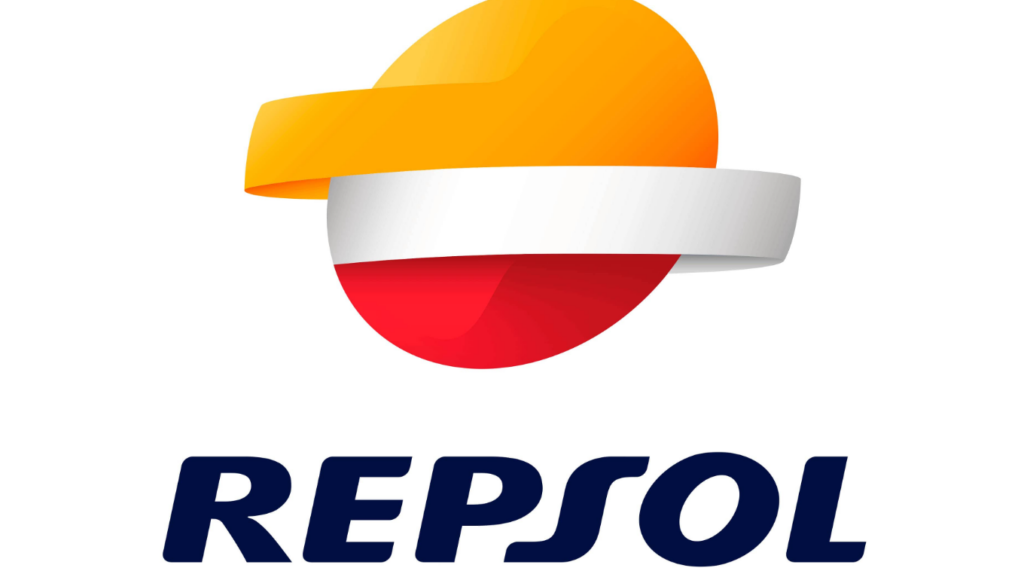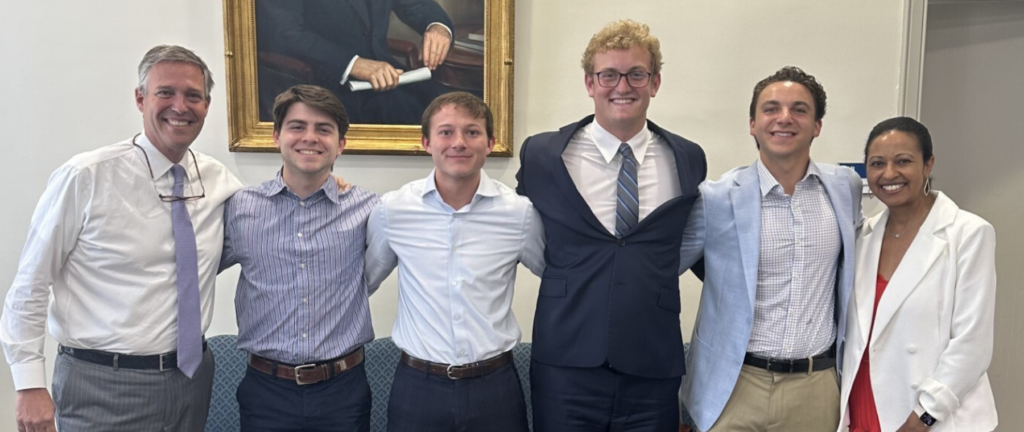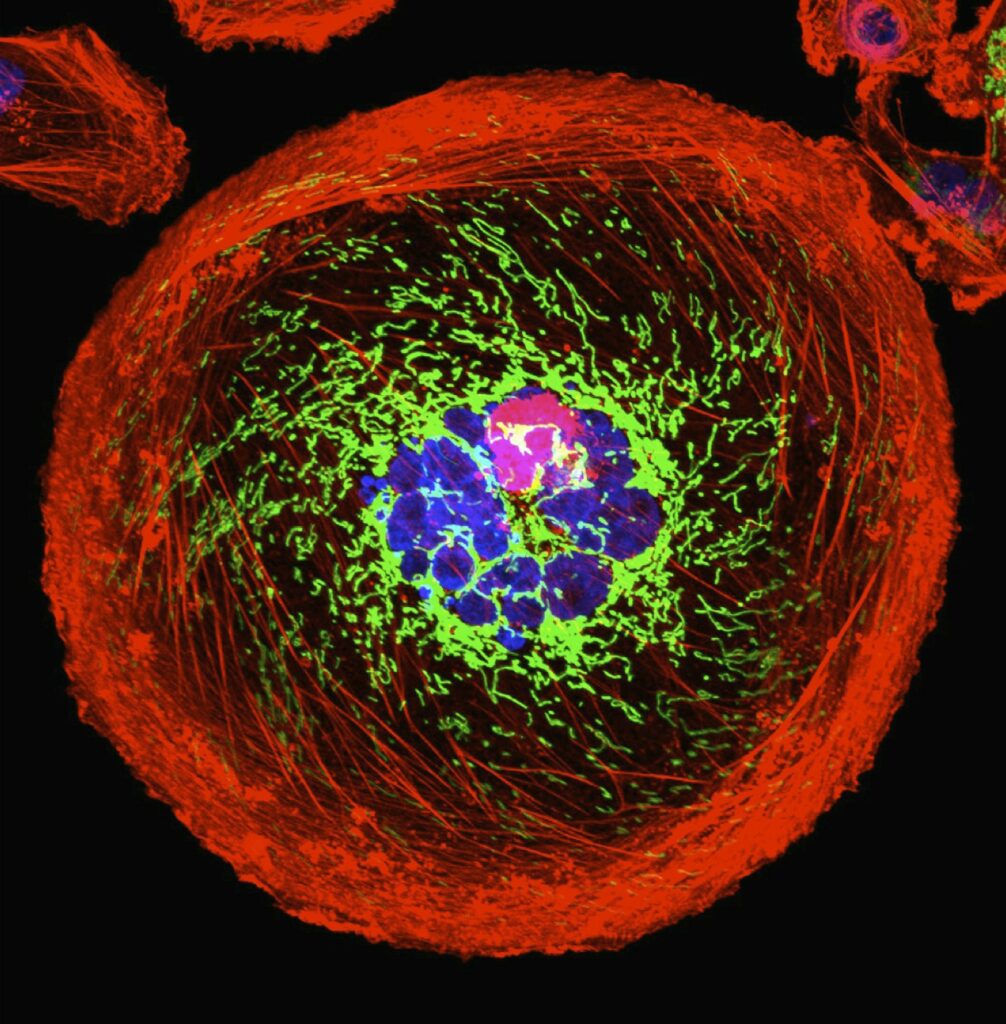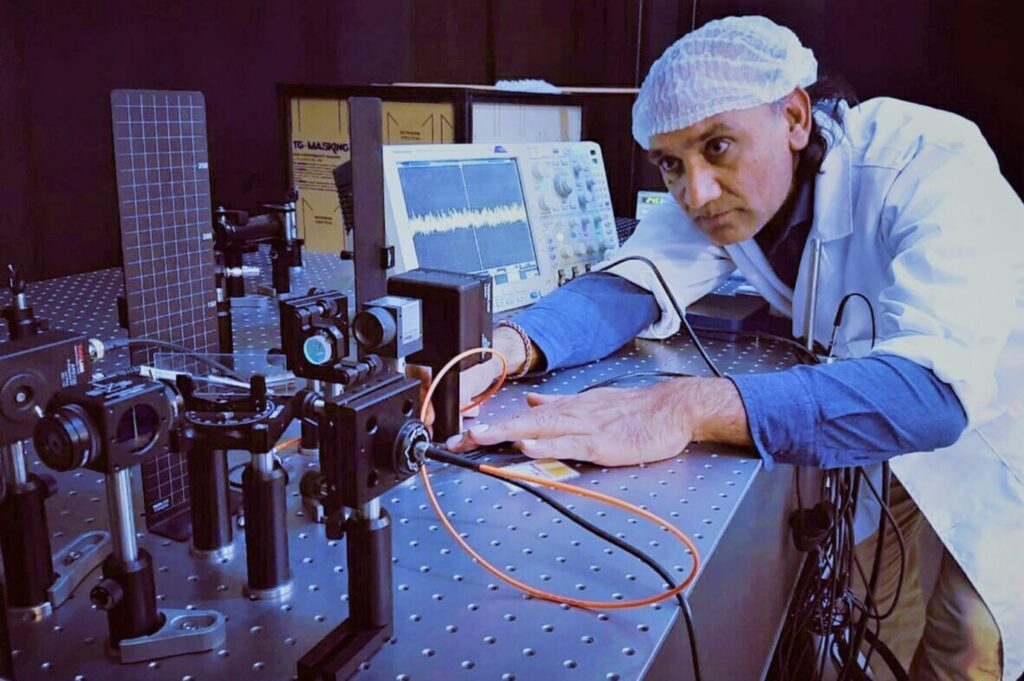Insider Brief
- A team of researchers write in Nature that science and society need to take proactive steps to ensure this powerful technology benefits humanity and the planet.
- Quantum technology could revolutionize fields like drug discovery, personalized medicine, and clean energy, but also raises concerns around privacy, security, and equitable access.
- The researchers — from Stanford University, the Technical University of Munich and The University of Amsterdam — propose a “responsible research and innovation framework” to guide the development of quantum technology.
Scientists, policymakers and technologists are struggling to wrestle with the ethical and economical implications of artificial intelligence, another technological tsunami is rapidly approaching shore.
A team of scientists are warning that as quantum applications appear ready to transform fields from healthcare to finance, science and society need to take proactive steps to ensure this powerful technology benefits humanity and the planet. In a recent article in Nature’s comment section, the team outlines a framework for responsible quantum technology (QT) development.
The team writes that the rapid pace of innovation in areas like quantum computing, sensing and communication poses both great promise and substantial risks. On the positive side, QT could revolutionize fields like drug discovery, personalized medicine, and clean energy. But it also raises concerns around privacy, security, and equitable access. There are even fears that the technology could be misused for harmful purposes like developing chemical weapons.
“What is needed is a proactive approach towards responsible QT innovation at a time when it is still malleable — exactly because the future is uncertain and the speed of development accelerating,” the authors write.

The team, which includes researchers from Stanford University, the Technical University of Munich and The University of Amsterdam, proposes a “responsible research and innovation framework” to guide the development of QT. This analytical tool acts as both an issue spotter and a compass, helping researchers, funders, and policymakers navigate the ethics, legalities, and societal implications of this emerging field.
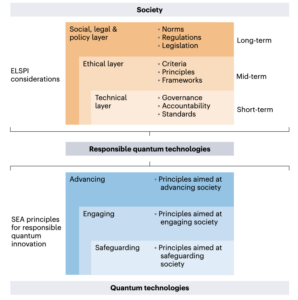
The framework presents a comprehensive approach for integrating ethical, legal, socio-economic, and policy considerations (ELSPI) into quantum technology research and development, aligning with responsible research and innovation (RRI) values.
Three key elements form the cornerstones of the plan: safeguarding principles, engagement principles, and advancing principles. Safeguarding principles aim to mitigate risks like cybersecurity threats and dual-use scenarios where the same technology could be used for both beneficial and harmful purposes. Engagement principles focus on enhancing interactions between QT innovators and stakeholders on topics like intellectual property and equitable access. And advancing principles prioritize QT applications that foster desirable social outcomes, such as those outlined in the UN Sustainable Development Goals. These principles are designed around the RRI dimensions of anticipation, inclusion, responsiveness, and transparency, aiming to responsibly address the potential risks and opportunities of quantum technologies.
The authors emphasize that quantum physicists have a crucial role to play in shaping responsible QT. Not only are they the experts driving technological development, but they will also be the primary users of many future QT applications in areas like healthcare and fundamental research.
“Physicists are well-suited contributors given their deep expertise and involvement in basic research and industrial applications,” the researchers write. “They are also uniquely positioned to bring to life the principles in practice and advance the common good.”
At the same time, the broader scientific community must be engaged. Issues of explainability and transparency, which have become pressing in the field of artificial intelligence, will likely resurface as QT-powered applications start impacting people’s rights and wellbeing. Physicists, along with experts in science communication, will be called upon to serve as educators and trust enablers in public debates, according to the researchers.
The authors also see an opportunity for QT to foster greater collaboration across scientific disciplines and between basic research and real-world applications. Researchers from the social sciences, humanities, and the arts will be essential partners in unlocking the full potential of responsible QT development.
While many questions remain open, the authors are clear that the scientific community will play a key role. By proactively defining principles and practices, they hope to avoid repeating the mistakes of past technological revolutions where ethical and societal implications were often an afterthought.
“Without a doubt, the pathway towards robust QT governance is long,” the researchers write. “However, what is already certain is that the science community has a key role to play as we collectively search for appropriate QT guardrails.”
The research team includes Urs Gasser, School of Social Sciences and Technology, Technical University of Munich, Germany, and Stanford Center for Responsible Quantum Technology, Stanford Law School; Eline De Jong, Stanford Center for Responsible Quantum Technology, Stanford Law School and Institute for Logic, Language and Computation and Institute of Physics, University of Amsterdam and Mauritz Kop, Stanford Center for Responsible Quantum Technology, Stanford Law School.
Access the complete article in Nature.
For more market insights, check out our latest quantum computing news here.

















